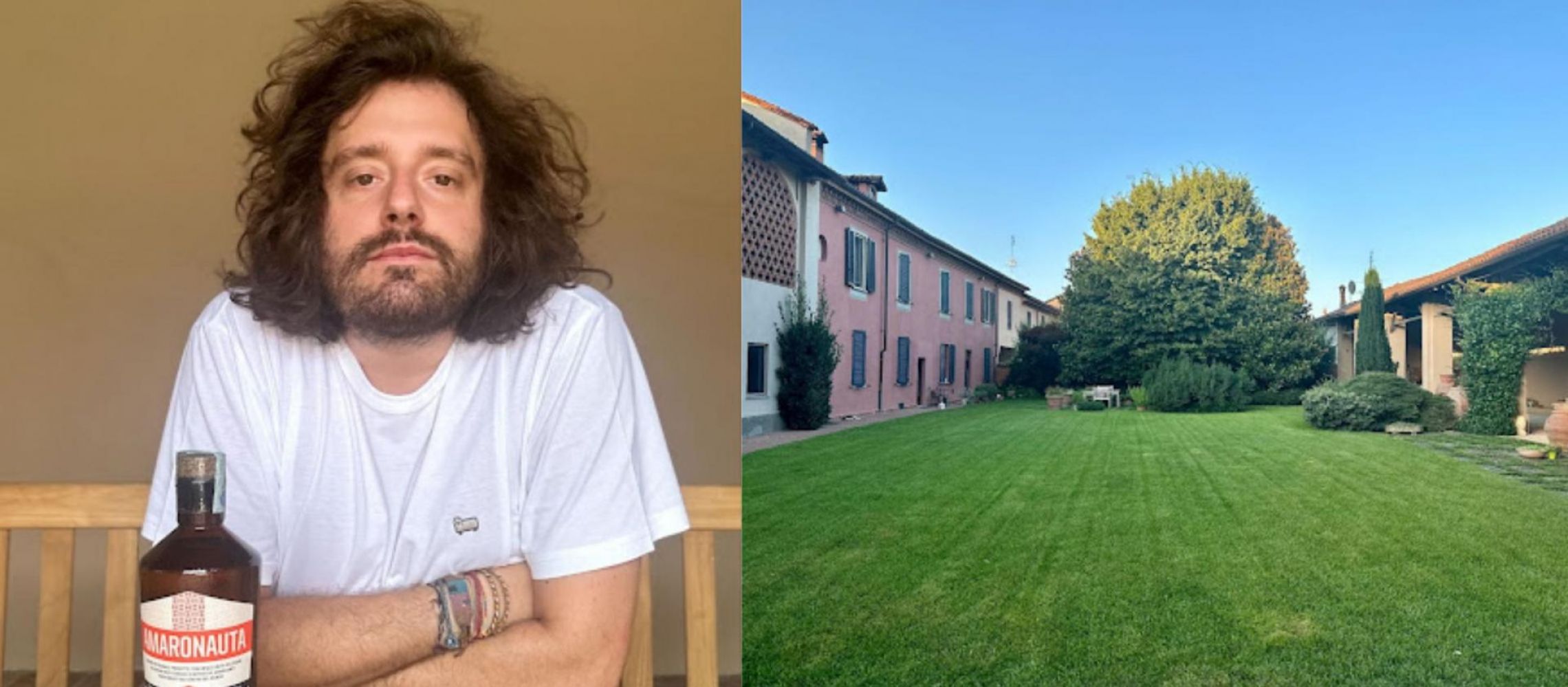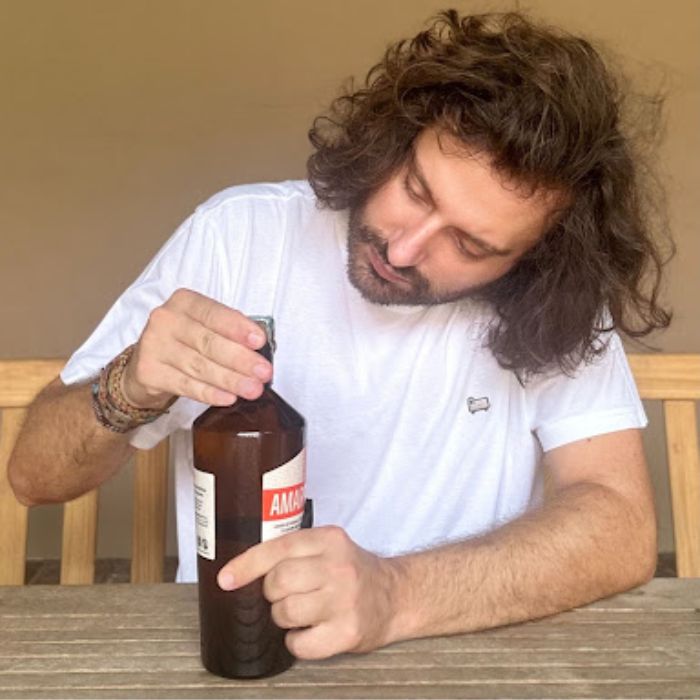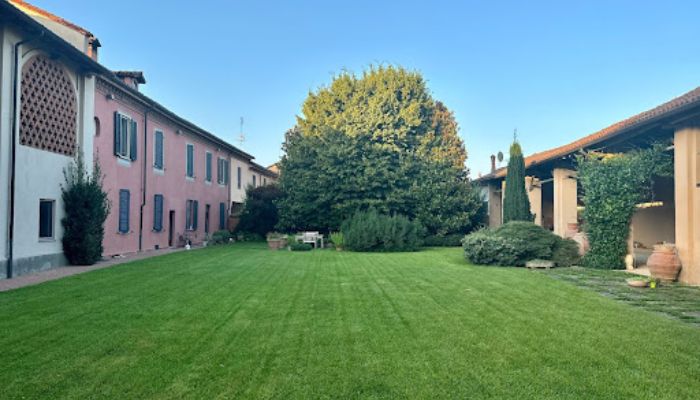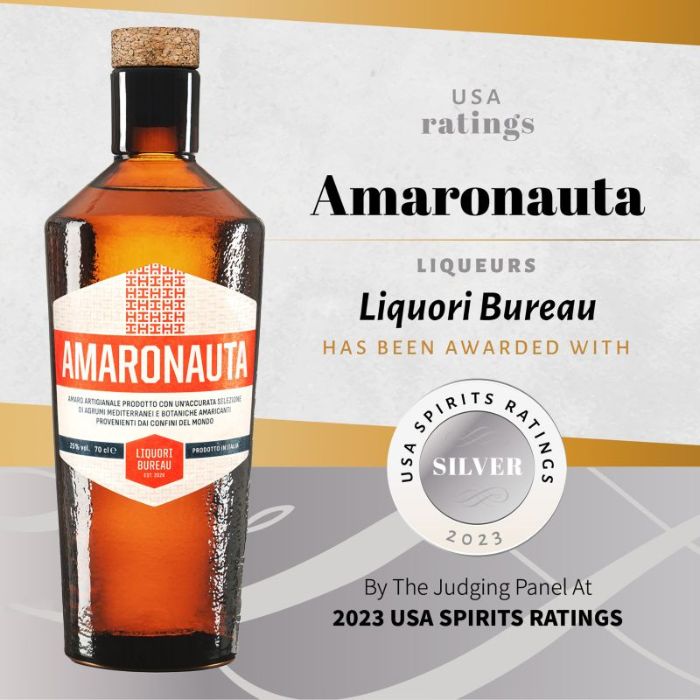Registration Opens
01 May 2024
Judging
Date
26 & 27 March 2025
Winners Announcement
22 April 2025

My journey into distilling began with an unconventional background in Civil Engineering. After completing my studies between the Polytechnic University of Turin, in Italy, and the Pontificia Católica Universidad de Chile I pursued a Master's Degree in Innovation and Entrepreneurship at ESADE Business School in Barcelona, Spain. This led me to embark on a new adventure, diving into the world of startups and entrepreneurial endeavors. I immersed myself in the dynamic and ever-evolving startup ecosystem between Spain and Italy, gaining valuable experience in building and scaling businesses. During that experience, I realized I wanted to channel my creativity and analytical skills into crafting a physical product that would have the potential to leave a lasting legacy. It was during this time that the idea of crafting an amaro started taking shape in my mind. The prospect of experimenting with botanicals, and creating a new product reflecting my way of seeing the world excited me immensely. This passion led me to establish my own company, Liquori Bureau, where I could embark on my distilling journey. I strive to build something that will stand the test of time, that will be enjoyed by generations to come. Through my journey in distilling, I aim to bring innovation to the current spirits world, meet interesting people, and contribute to the growth and development of my local community. This adventure has become the perfect amalgamation of my technical skills as a civil engineer, my entrepreneurial mindset, and my desire to create something meaningful. It allows me to express my creativity, challenge myself, and connect with others who appreciate the artistry of spirits.
I define myself as the Chief Bureau Officer of Liquori Bureau. I embrace a versatile role that encompasses the diverse aspects of running a liqueur company and, being the solo founder and employee of the company, I found it difficult to fit myself in a prefabricated or high-sounding title. In my current role, my day-to-day activities encompass a wide range of responsibilities and my days are diverse depending on the stage and priorities of the business. Currently, I am heavily focused on marketing and business development. I mainly seek and nurture partnerships with importers and distributors both nationally and internationally. Additionally, I allocate time to marketing initiatives collaborating with external professionals, such as designers and media agencies. This involves developing and implementing marketing strategies, managing social media accounts, and building brand awareness on the customer side. Simultaneously, I am involved in product development to enrich my current offerings. I also handle various administrative tasks such as managing finances, tracking expenses, and overseeing logistics and operations. I like to personally take care of local deliveries in order to receive constant feedback from the most loyal customers and enjoy sincere relationships with clients.

Image: Michelangelo Buzzi
After spending several years working in several startups, in a highly technology-centric environment, while I enjoyed the technical aspects of agile development, I found myself longing for the ability to create something tangible and express my creativity in a different way. I realized that I wanted to work with physical products and engage with the most enduring experience they offer. I have always had a passion for liqueurs and the artistry behind them so I found myself drawn to the idea of creating my own liquor, as it would provide a perfect balance between my analytical side and my creative instincts. The allure of crafting spirits lies in the ability to create something that people can enjoy and appreciate on a sensory level, from selecting the ingredients to the whole brand development process.
Having a holistic perspective is crucial for a distiller as it enables one to understand the broader context and apply enduring industry trends in practical ways. While grasping the technical aspects is essential, anticipating and adapting to evolving consumer preferences and market demands hold equal importance. Staying updated with market trends, and consumer preferences, and possessing knowledge of branding and marketing is pivotal for achieving success. To accomplish this, working alongside industry experts and selecting suitable partners becomes fundamental. Access to their expertise, guidance, and networks significantly enhances a distiller's skills and overall success. Collaborating with knowledgeable professionals not only provides valuable insights but also fosters opportunities for growth.

Image: The Distillery
Where a distiller can truly stand out is in their understanding of trends. It is crucial for a distiller to stay ahead of the curve and have a keen awareness of emerging market trends. While popular trends may already be covered extensively in journals and publications, a distiller can bring fresh perspectives by staying up to date with the market and actively experimenting. By proactively exploring I believe distillers can create innovative products that align with evolving consumer preferences. A distiller's expertise in crafting unique spirits gives them an advantage in driving mid-term sales because they can create products that not only align with current trends but also have the potential to set new trends and capture market attention.
For me, a good distiller is not only someone who has a strong foundation of technical knowledge and skills but also someone who can effectively navigate the market and its macro trends. Understanding consumer preferences, market demands, and industry dynamics is crucial for developing products that resonate with the target audience. Furthermore, a good distiller knows how to merge their technical expertise with storytelling. In today's market, the story behind the product is just as important as the quality of the product itself. A distiller who can craft a compelling narrative around their spirits, highlighting the unique ingredients, production methods, and the brand's values, can create an emotional connection with consumers.

Image: 2023 USA Spirits Ratings
In my opinion, the hardest part of a distiller's job is finding the right balance between personal intuition and objectivity in assessing the potential market success of new product ideas. By cultivating a mindset that is receptive to feedback, actively seeking diverse perspectives, and staying attuned to the evolving tastes and preferences of consumers, a distiller can overcome this challenge and create spirits that not only showcase their creativity but also resonate with a broader audience. A good distiller must be able to step back and objectively evaluate the potential market appeal and demand for a new product idea, considering a wider range of perspectives beyond their own. This requires the ability to conduct market research, analyze consumer trends, and engage in constructive conversations with colleagues, industry experts, and potential customers. By actively seeking input and feedback from others, a distiller can gather valuable insights that help in refining and enhancing product ideas, ensuring they align with market expectations and demands. Furthermore, maintaining an open mind and embracing constructive criticism is crucial. A distiller must be willing to explore new directions, pivot if necessary, and make decisions based on a combination of expertise, market research, and consumer feedback.
I created Amaronauta because I wanted to try to transcend the world of bitter liqueurs into two dimensions: Starting with the spatial dimension, unlike most bitters, which base their value proposition on the locality of their products, I decided to select multiple botanicals from various continents in order to give the product an international scope. Then, turning to the temporal side, Amaronauta is an amaro born in 2020 that is able to adapt to modern ways of drinking. In addition to being thought to be enjoyed on its own, it is perfectly suitable with modern mixology, being of egregious support to Mezcal or Whiskey and offering the possibility of making original clear twists of the great aperitif classics. Amaronauta has a mainly citrus profile to be easy to approach for most palates but develops with an eclectic balsamic profile and a fresh, spicy aftertaste. It comes in 100% post-consumer recycled glass bottle color amber to preserve the natural hue of the infusion. Lastly, it is produced in Piedmont, Italy.
In my opinion, there are two primary challenges that the spirits industry is currently facing. The first one is maintaining the quality of the product and preserving the integrity of the brand while meeting the high demand from consumers. As the popularity of spirits continues to grow, distillers face the pressure to produce larger quantities without compromising on quality. It can be challenging to scale production while ensuring brand positioning and integrity. The second challenge lies in effectively communicating the quality of the product and promoting responsible and safe consumption. As the spirits industry grows more diverse and competitive, it becomes essential for distillers to clearly convey the value and uniqueness of their products. This includes highlighting the quality of ingredients, the craftsmanship involved in the production process, and the brand's commitment to sustainability and responsible practices. Furthermore, distillers have a responsibility to advocate for drinking habits that prioritize the quality of the spirits consumed. In addition, they must actively participate in promoting responsible drinking practices and providing education to consumers regarding the necessity and the benefits to shift to an industry based on the quality of its products.
My go-to drink is mainly represented by infused bitters. I am particularly drawn to the vibrant and refreshing flavors that result from combining zesty citrus fruits with carefully selected herbs and botanicals. This combination not only showcases the versatility of these ingredients but also allows for the creation of intriguing flavor profiles. When it comes to the perfect setting to enjoy such a drink, I find that a convivial atmosphere enhances the overall experience. The ambience is relaxed and welcoming, providing the ideal backdrop for both introspection and social connection.
My idea of a good life centers around finding a harmonious balance in my day-to-day trying to integrate my work into my passions, creating a seamless connection between what I do professionally and what truly brings me fulfilment. While I value work-life balance, I strive to align my career to allow me to pursue my passions without having to divide my time and energy starkly. By finding a career path that genuinely ignites my interests, I can approach duties and challenges with enthusiasm and drive, knowing that my work aligns with my personal goals and aspirations. Furthermore, I believe in the importance of dedicating time to cultivating other passions outside of my professional life. This includes pursuits such as travelling and music production. I have observed that creativity and innovation often flourish at the intersection of different fields, and by exploring diverse interests, I can bring fresh perspectives and ideas to fuel my creativity and personal growth.
As an enthusiast of bitter liqueurs, I am inclined to choose two Italian books that have profoundly influenced my perspective on the universe of infusions. 1. Amari e bitter - Storia e produzione dagli speziali ai bartender by Fulvio Piccinino The book analyzes the origins of bitters and traces its evolution from primarily a pharmaceutical item to a popular product used in bars. Especially intriguing is the author's analysis, which draws parallels between the development of products and the changing consumption patterns of society. 2. Il grande libro dell’amaro italiano by Matteo Zed Through this book, I was introduced to a scientific classification of bitters, gaining valuable insights into their diverse characteristics. Additionally, the exploration of liquor factories' geographical distribution and the use of various botanicals provided a fascinating overview of the bitters' global impact and intricate production methods.
Shall we meet at the edges of the world? Introducing Amaronauta, a unique and radical proposition born out of a true passion for the product. With Amaronauta, we wanted to create an amaro that offers a commercially viable taste while bringing a strong differentiation factor. Our approach breaks away from the conventional norms by embracing an anti-conformist mindset because, unlike traditional Italian bitters that proudly utilize hyper-local ingredients, Amaronauta goes beyond borders. We explore botanicals from different continents, infusing our amaro with a global perspective. This unique blend of ingredients creates a captivating flavor profile that stands out in the market and opens up the product to a wider audience. What sets Amaronauta apart is also our commitment to natural processes. We avoid any artificial coloring and flavoring also differentiating our amaro with its natural yellow hue that makes it particularly suitable for mixology. By bringing in Amaronauta, you're offering your customers a bold and distinctive amaro that embodies creativity, authenticity, and a sense of adventure. It's a product that pushes boundaries while still maintaining commercial viability.
In my pursuit of sustainability within the spirits industry, I believe in incorporating sustainable practices into my production methods. While achieving complete sustainability may be a lofty goal, I strive to make conscious choices that prioritize the environment and add value to the final product. One of the fundamental aspects of sustainability for me is ensuring that every ingredient and component used in my spirits adds value to the desired taste. For instance, in the production of my liqueur, I have chosen to exclude any colorants or additives that do not contribute to the flavor or overall quality of the product. This not only aligns with my commitment to creating an authentic and high-quality spirit but also reduces unnecessary waste and potential environmental impact while promoting healthier drinking. Another important step I take towards sustainability is selecting packaging materials that have a reduced ecological footprint. I prioritize post-consumer recycled glass for bottles, which helps minimize the demand for new glass production and reduces the strain on natural resources. Additionally, I opt for cups and other packaging materials that require less water and energy during the manufacturing process. This choice not only decreases the carbon footprint associated with production but also encourages a circular economy by utilizing recycled materials. Moreover, actively try to collaborate with like-minded organizations in order to collectively make a more significant impact by supporting sustainable practices throughout the supply chain. By working together, we can ensure that every step of the production process aligns with our shared commitment to environmental responsibility.
To explore new markets for my spirits and drive business development, I begin by conducting a thorough market analysis. This involves researching the current market landscape, identifying potential target markets, and assessing their growth potential. I analyze market trends, consumer preferences, regulatory requirements, and competition to gain a comprehensive understanding of the opportunities and challenges that lie ahead. However, numbers and data alone do not provide the complete picture. I also leverage personal experiences and connections to gain insights into the targeted markets. I tap into my own network or establish new contacts with industry professionals, distributors, and local experts who have firsthand knowledge of the market dynamics. Their insights and perspectives help me gather valuable information about consumer preferences, distribution channels, and cultural nuances that shape the market. Once I have a solid understanding of the market, I focus on building a network of contacts and potential suppliers. Establishing strong relationships with local distributors, importers, and industry partners is crucial for successfully entering new markets and being able to tailor go-to-market strategies.
[[relatedPurchasesItems-63]]
When considering the future of the beverage industry, it is important to distinguish between micro and macro trends in order to avoid getting caught up in overly narrow tendencies, in my opinion, it is crucial to understand the broader direction that is beneficial for the evolution of the industry. Currently, we are witnessing a significant rise in the number of craft distilleries, indicating a growing interest in unique and artisanal spirits. I see this trend to be likely to continue in the coming 2 to 4 years, as consumers increasingly seek out more and more authentic produced beverages. However, I believe the main challenge lies in maintaining high-quality standards across the craft distilling sector. We may see a greater emphasis on sustainability and environmental consciousness. Consumers are becoming more mindful of the ecological impact of their choices and are seeking out brands that align with their values. Craft distilleries that embrace sustainable practices, such as sourcing natural ingredients, and re-implementing traditional production methods, while bringing a fresh and modern perspective to the sector are likely to attract attention and gain a competitive edge. Additionally, there is an increasing demand for innovation and experimentation in the spirits industry. Craft distillers have the opportunity to push boundaries and create unique flavor profiles by utilizing novel ingredients, and, for example, exploring alternative aging techniques. Another potential trend is the revival of traditional or forgotten spirits and techniques. Consumers are showing a growing interest in historical recipes, heritage distilling methods, and traditional spirits that offer a sense of nostalgia and authenticity.
Where a distiller can truly stand out is in their understanding of trends. It is crucial for a distiller to stay ahead of the curve and have a keen awareness of emerging market trends. While popular trends may already be covered extensively in journals and publications, a distiller can bring fresh perspectives by staying up to date with the market and actively experimenting. By proactively exploring I believe distillers can create innovative products that align with evolving consumer preferences. A distiller's expertise in crafting unique spirits gives them an advantage in driving mid-term sales because they can create products that not only align with current trends but also have the potential to set new trends and capture market attention.